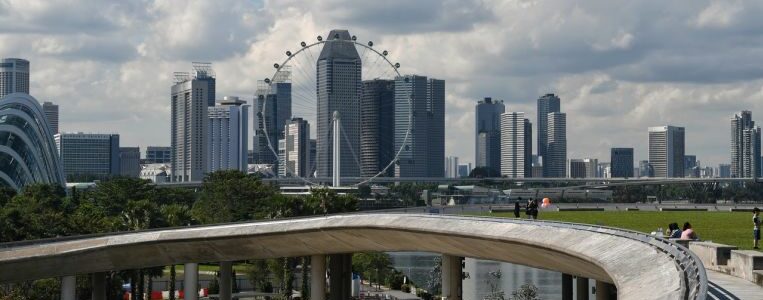
Singapore GDP growth to slow to 3-5% in 2022 after 7% gain this year
SINGAPORE – Singapore’s economic growth will slow to between 3 per cent and 5 per cent next year amid an uneven recovery at home and lingering uncertainty over global growth, the Ministry of Trade and Industry (MTI) said on Wednesday (Nov 24).
MTI said gross domestic product (GDP) growth this year will come at around 7 per cent, the top end of an earlier forecast range of 6 per cent to 7 per cent, aided by export-oriented sectors led by manufacturing.
In 2022, however, travel and domestic restrictions due to the Covid-19 pandemic may continue to cap recovery of aviation- and tourism-related sectors as well as consumer-facing sectors such as food and beverage services and retail trade.
The final estimate of growth in the third quarter came in at 7.1 per cent on a year-on-year basis, slower than the 15.2 per cent expansion recorded in the previous quarter (which was off a low base in 2020), but higher than an earlier projection of 6.5 per cent.
This brought GDP growth in the first three quarters of 2021 to 7.7 per cent, MTI said.
On a quarter-on-quarter seasonally adjusted basis, the economy expanded by 1.3 per cent in the third quarter, compared with the 1.4 per cent contraction in the second quarter.
For 2022, Singapore’s high vaccination rate and steady roll-out of booster shots will continue to facilitate the progressive easing of domestic and border restrictions, which will support the recovery of consumer-facing sectors and alleviate labour shortages in sectors that are reliant on migrant workers.
Air travel and visitor arrivals are also expected to improve with the loosening of travel restrictions and expansion of vaccinated travel lanes.
Globally, GDP growth in most advanced economies is expected to moderate as compared with 2021 but remain above pre-Covid-19 trend rates, MTI said.
In contrast, key South-east Asian economies are projected to see faster growth in 2022 as they progressively resume more economic activities. However, supply bottlenecks and disruptions could continue to weigh on industrial production in some of the economies in the near term.
MTI said there are still downside risks in the global economy as the trajectory of the pandemic remains uncertain.
“If global supply disruptions are more protracted than expected due to further Covid-19 outbreaks, logistical or production constraints, global industrial production may be constrained for longer.”
Also, protracted supply disruptions alongside a stronger pickup in demand, and rising energy and commodity prices, could lead to more persistent inflation.
Higher inflation could result in an earlier or larger increase in interest rates than anticipated, thereby triggering a tightening of global financial conditions.
MTI said that continued geopolitical uncertainty involving the major economies could weigh on trade and the global economic recovery.
“Against this backdrop, the recovery of the various sectors of the economy in 2022 is expected to remain uneven.”
Join ST’s Telegram channel here and get the latest breaking news delivered to you.
Source: Read Full Article